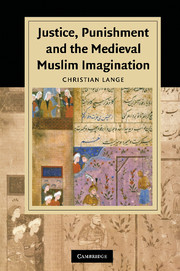Book contents
- Frontmatter
- Contents
- Acknowledgments
- List of abbreviations
- Introduction
- PART I THE POLITICS OF PUNISHMENT
- PART II THE ESCHATOLOGY OF PUNISHMENT
- PART III LEGAL DIMENSIONS OF PUNISHMENT
- 5 Circumscribing ḥadd in Sunnī law
- 6 Discretionary punishment (taʿzīr) and the public sphere
- Conclusion
- Bibliography
- Index of names
- Index of subjects
- Cambridge Studies in Islamic Civilization
5 - Circumscribing ḥadd in Sunnī law
Published online by Cambridge University Press: 21 July 2009
- Frontmatter
- Contents
- Acknowledgments
- List of abbreviations
- Introduction
- PART I THE POLITICS OF PUNISHMENT
- PART II THE ESCHATOLOGY OF PUNISHMENT
- PART III LEGAL DIMENSIONS OF PUNISHMENT
- 5 Circumscribing ḥadd in Sunnī law
- 6 Discretionary punishment (taʿzīr) and the public sphere
- Conclusion
- Bibliography
- Index of names
- Index of subjects
- Cambridge Studies in Islamic Civilization
Summary
Analogy and punishment in Western and Islamic law
One of the fundamental principles of modern Western criminal law is the prohibition of analogy. The notion is first encountered in constitutions written toward the end of the eighteenth century. Some decades later, in 1813, the German theorist of criminal law Feuerbach (1775–1833) gave theoretical shape to the concept, famously coining the rule that there can be no legal punishment without a law (nulla poena sine lege). This “principle of legality” is an important tenet of political liberalism. The prohibition of analogy in criminal matters was developed to protect individual liberty against the encroaching authority of the repressive state apparatus and the arbitrary penal adjudication of the ancien régime. At the same time, the doctrine of nulla poena sine lege challenged the citizen, whom early nineteenth-century jurists envisioned as an “enlightened” individual, to ponder critically the existing positive law. This development in modern criminal law theory coincided with, and became possible on the grounds of, the emergence of the politically autonomous citoyen and the modern nation-state based on a system of codified law. At first sight, then, it would appear to make little sense to look for analogies to the prohibition of analogy in the criminal law of premodern societies such as medieval Islam. However, the notion that the law had to be protected from the excesses of the ruling classes was not foreign to the jurists of Islam.
- Type
- Chapter
- Information
- Justice, Punishment and the Medieval Muslim Imagination , pp. 179 - 214Publisher: Cambridge University PressPrint publication year: 2008



